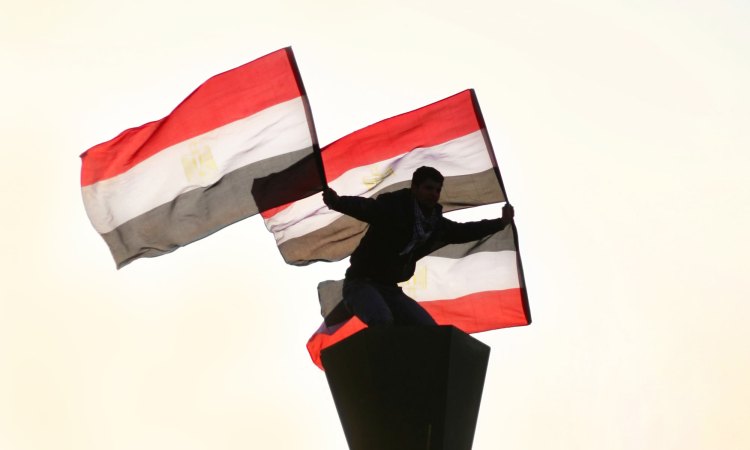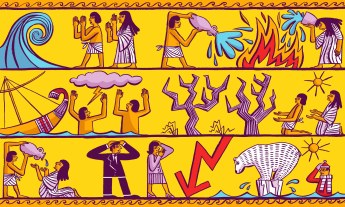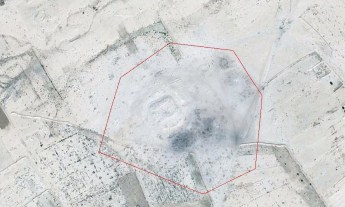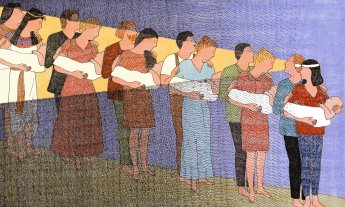
3 Al Jazeera journalists were just sentenced in Egypt to long jail terms. Ready to go beyond the headlines? 5 primary sources worth reading next.
Read: Al Jazeera explains Monday’s verdict.
Why you should read this: In a broadly condemned Egyptian trial this week, three Al Jazeera journalists were convicted — after six months of detention — of producing “false news reports” and aiding “a terrorist organization” in Egypt. Here’s what Al Jazeera has to say about the situation.
Excerpt: “An Egyptian court has sentenced two Al Jazeera journalists to seven years in prison and another to ten years, on charges including aiding the Muslim Brotherhood and reporting false news. A judge delivered the verdicts Monday against Peter Greste, an Australian citizen; Mohamed Fahmy, a Canadian citizen; and Baher Mohamed, an Egyptian citizen. Al Jazeera has always rejected the charges against its journalists and maintains their innocence.”
Watch: The former head of Al Jazeera spoke at TED in the first months of Arab Spring, in 2011. He shared a “profoundly optimistic view.”
Read: A transcript of U.S. Secretary of State John Kerry’s remarks.
Why you should read this: The conviction happened just one day after U.S. Secretary of State John Kerry visited Cairo and expressed U.S. support for Egypt’s new president, Abdel Fattah al-Sisi — and just months after the U.S. pledged to restore millions of dollars in aid to Egypt’s military. Kerry spoke to reporters about the verdict during a press availability at the U.S. Embassy in Iraq on Monday.
Excerpt: “Today’s conviction is obviously — it’s a chilling and draconian sentence. And it’s deeply disturbing to see in the midst of Egypt’s transition. It simply cannot stand if Egypt is going to be able to move forward in the way that Egypt needs to move forward, in order to respond to the extraordinary aspirations of those young people who twice came in to Tahrir Square in order to demand a responsive government. So the success of Egypt going forward will depend on the protection of universal human rights, and it will depend on a real commitment to embracing the hopes of the people there that they’re going to see a judicial system that is responsive and modern and not one trapped in ideology or in this kind of extreme decision.”
Read: BBC journalist Andrew Harding says “it really could be any of us.”
Why you should read this: Journalists around the globe are outraged and frightened by the Egyptian verdict. The international reporting community’s outpouring of support has led to newsroom protests, op-eds — and the hashtags #FreeAJStaff and #journalismisnotacrime.
Excerpt: “I first ran into journalist Peter Greste in a sandstorm in northern Afghanistan in 2001. We were both staying in the same crowded, shabby house, trying to make sense of the fighting nearby, and clinging on to a few home-comforts — something at which Peter, with his roll-ups, his music and his well-honed ability to put the stresses of the job to one side over a few beers, excelled. … The idea — and here I realise I am being subjective, though I hope impartial — that Peter was working in Cairo in support of Egypt’s Muslim Brotherhood is absurd, and appears to have been revealed as such in court to most viewers, although not, as today’s sentence makes clear, to the judge.”
Watch: This set of TED Talks from three journalists who take huge risks to get the story. Because if they don’t — the story might not be told.
Read: The Reporters Without Borders 2014 World Press Freedom Index.
Why you should read this: Every year, Reporters Without Borders evaluates the conditions in which journalists work around the globe. In which countries is it possible to do free, fair reporting without ongoing censorship, safety concerns or political pressure? This year’s report ranks Egypt 159th out of 180 countries.
Excerpt: “The 2014 index underscores the negative correlation between freedom of information and conflicts, both open conflicts and undeclared ones. In an unstable environment, the media become strategic goals and targets for groups or individuals whose attempts to control news and information violate the guarantees enshrined in international law, in particular, article 19 of the International Covenant on Civil and Political Rights, the 1949 Geneva Conventions and the 1977 Protocols Additional 1 and 2 to the Geneva Conventions.”
Read: Human Rights Watch muses on Egypt’s future.
Why you should read this: Human rights workers are appalled by the state of affairs in Egypt. No one really knows what will happen next.
Excerpt: “These convictions are the latest step in Egypt’s unrelenting assault on free expression, dramatically reversing gains made following the January 25, 2011 uprising…. Sentencing three professional journalists to years in prison on the basis of zero evidence of wrongdoing shows how Egypt’s judges have been caught up in the anti-Muslim Brotherhood hysteria fostered by President al-Sisi.”
Bonus read: Graffiti activist Bahia Shehab writes about her home, Cairo, and the uncertain future she sees there.
And check out more Egypt-related TED Talks. Featured image: iStock.











